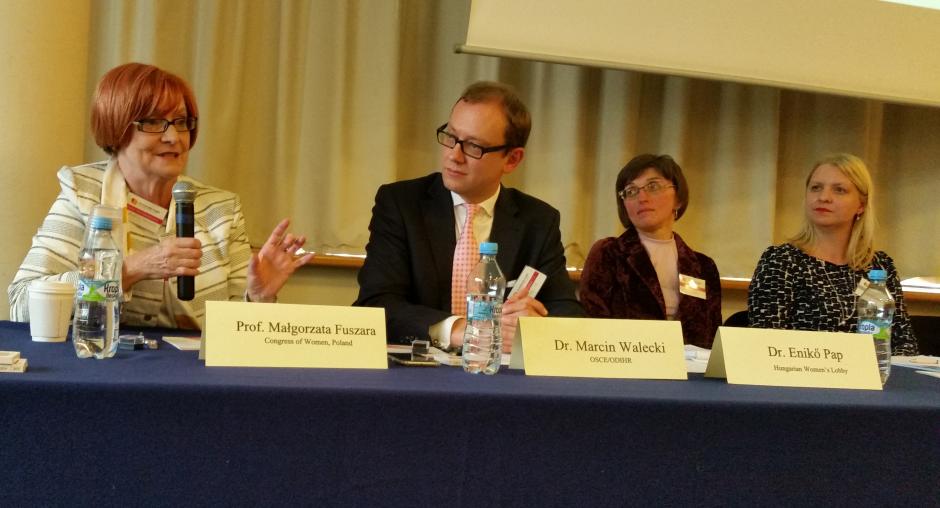Creating platforms for women’s lobbying strengthens democracies, say panelists at OSCE/ODIHR event in Warsaw

Strengthening women’s lobbying in public and political life in the OSCE region was the focus of a panel discussion in Warsaw on 13 May 2016, organized by the OSCE Office for Democratic Institutions and Human Rights (ODIHR) in co-operation with the Polish Congress of Women. The event was organized as part of the 8th Annual Congress of Women, which brought together some 5,000 women from Poland and across Europe.
Some 50 gender-equality advocates and speakers from Finland, Hungary, Poland and Ukraine attended the event, which served as a platform to exchange views and ideas concerning women’s lobbying in the OSCE region, including good practices and lessons learned.
"The majority of OSCE participating States have not reached gender parity and the average rate of women in their parliaments currently stands at 25.7 per cent. Quite simply, women do not have adequate representation in decision-making," said Marcin Walecki, Head of ODIHR’s Democratization Department. "There is a need to explore alternative approaches to advancing gender equality through building coalitions of women politicians, women parliamentarians, women’s civil society organizations, and members of academia and other groups."
Iryna Lutsenko, a member of Ukraine’s parliament, said: "Strengthening women’s voices in public discourse means more than just having their opinions represented. It also has effects beyond women’s status in societies, as they not only become more equitable, but democracies become stronger and more legitimate."
Eniko Pap, Legal Expert for the Hungarian Women’s Lobby, said: "By using different approaches and lobbying techniques, women politicians and women’s organizations can play a crucial role in advancing women’s rights, including their participation in public and political life. If these efforts are complementary, grounded in the values of democracy and women's human rights, and utilize expertise and experiences in this field, their combined impact and advocacy can lead to tangible change and state action."
The event was organized as a part of ODIHR’s continuing efforts to advance women’s participation in decision-making across the OSCE region, including in Ukraine through its “Strengthening Dialogue among Civil Society and with Key Governmental Stakeholders in Ukraine” project, in line with OSCE commitments and international standards.
